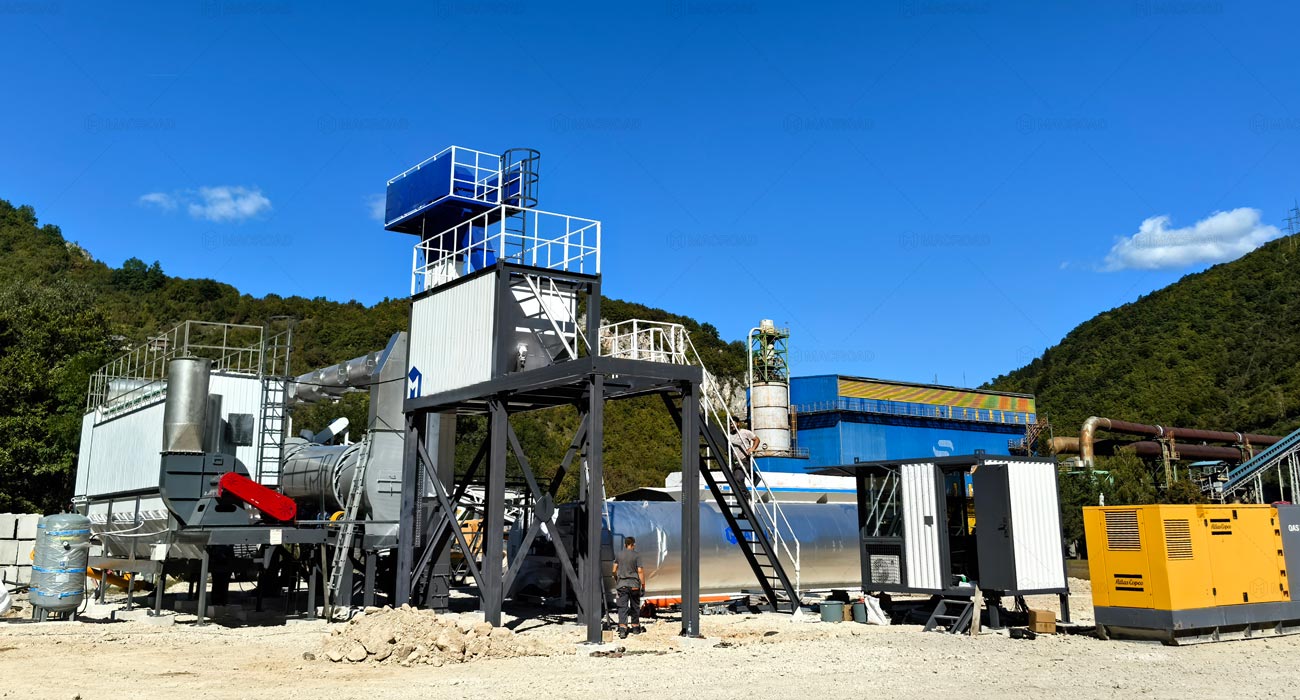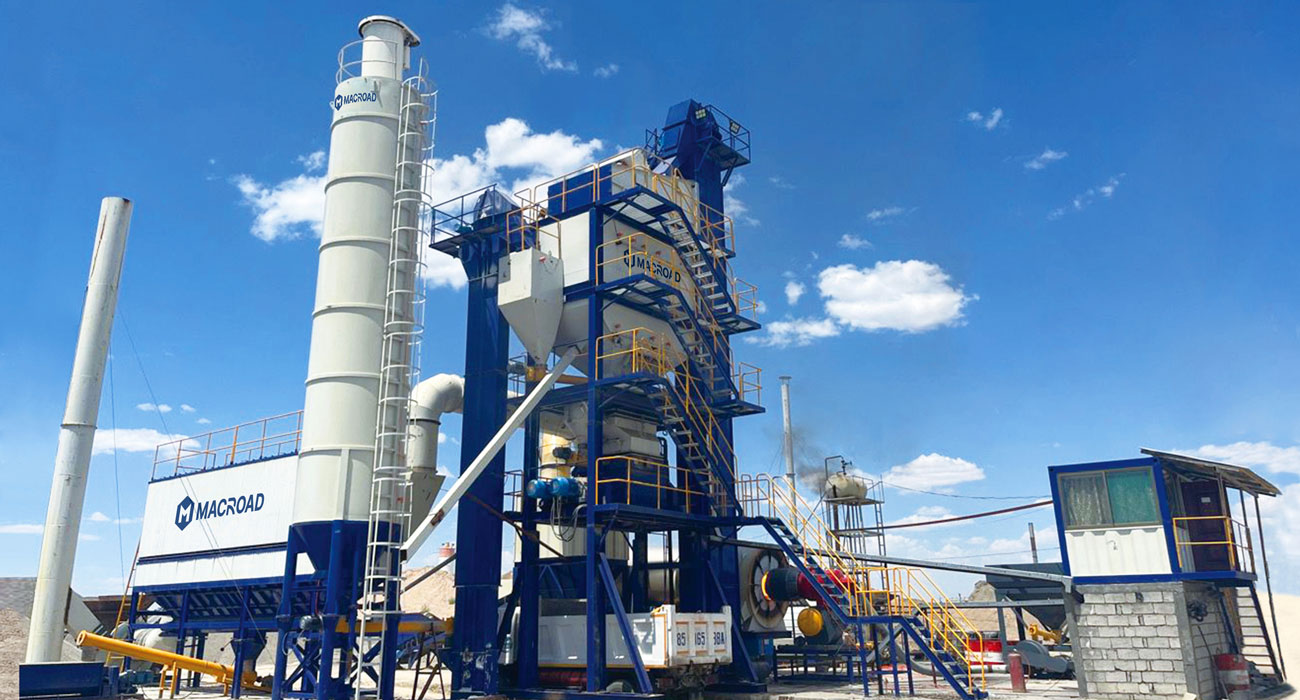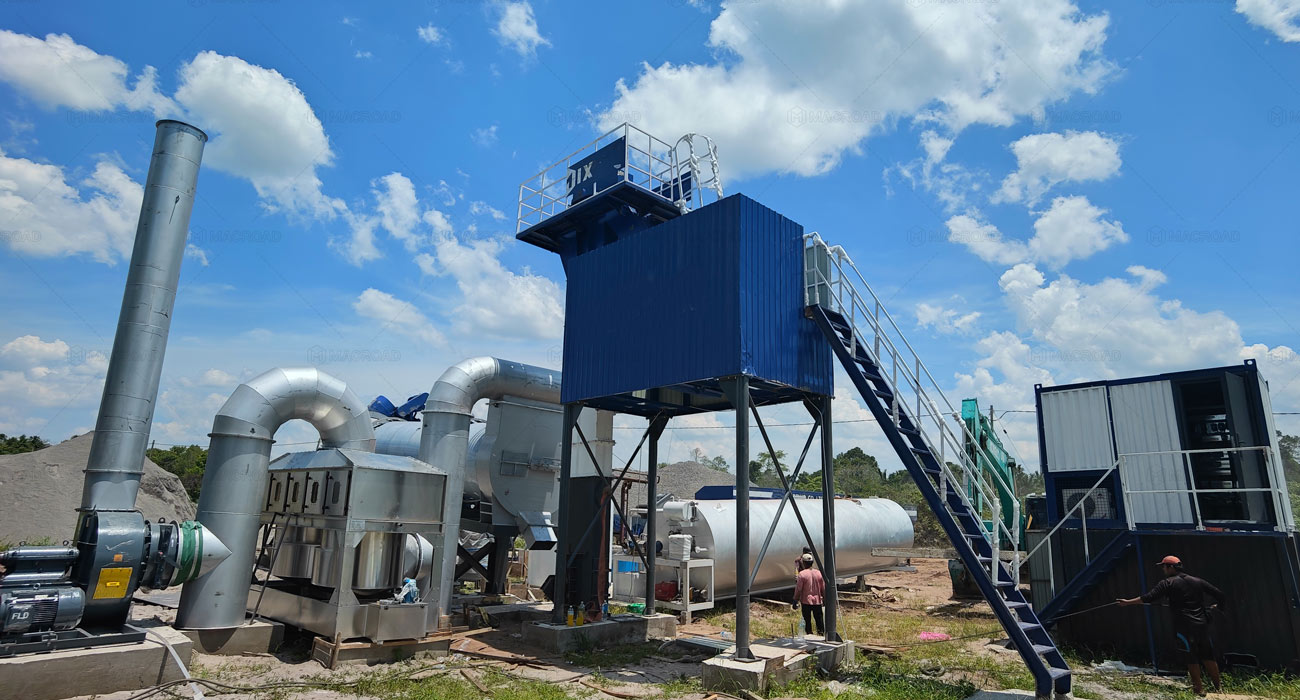Municipal roads construction faces stringent environmental requirements for asphalt production, particularly concerning dust and noise emissions in urban areas. As a result, asphalt mixing plants must be equipped with various environmental protection facilities, such as closed silos and noise reduction devices. While these additions are essential for compliance, they also contribute significantly to asphalt plant cost. In urban projects with tightened environmental policies, it is crucial to find a balance between “environmental compliance” and “cost control” to avoid excessive investment in environmental facilities or project shutdowns due to failure to meet standards.

Choosing Cost-Effective Environmental Solutions
One effective strategy for balancing environmental compliance with cost control is to select cost-effective small environmental modules. For instance, using portable dust collectors instead of larger, permanent systems can significantly reduce initial investment while still achieving effective dust control. These portable solutions can be deployed as needed, providing flexibility in managing emissions without incurring the higher costs associated with larger systems.
Additionally, small environmental modules often require less maintenance and can be more easily relocated, making them ideal for municipal roads construction that may involve multiple sites. By opting for these solutions, project managers can ensure compliance with environmental standards without overspending on unnecessary infrastructure.

Optimizing Production Time for Noise Reduction
Another approach to managing asphalt plant cost while adhering to environmental regulations is to optimize production time. Conducting asphalt production during off-peak hours can significantly minimize noise impacts on nearby communities. This strategy not only helps to comply with noise emission limits but also reduces the necessity for extensive noise reduction investments, such as sound barriers or specialized equipment.
By aligning production schedules with local noise ordinances and community preferences, asphalt mixing plant can operate more efficiently and reduce the risk of complaints or regulatory fines. This proactive approach ensures that projects stay on track without incurring additional costs related to noise mitigation.

Implementing Efficient Monitoring Systems
To further enhance compliance and asphalt plant cost control, implementing efficient monitoring systems within asphalt mixing plants can be beneficial. Continuous monitoring of dust and noise emissions allows for real-time adjustments to production processes, ensuring that environmental standards are consistently met without unnecessary expenditures on equipment or facilities.
These monitoring systems can provide valuable data that helps operators identify potential issues before they escalate, allowing for timely interventions that prevent costly shutdowns or fines. By integrating technology into the production process, municipal roads construction projects can achieve both environmental compliance and operational efficiency.
Conclusion
In conclusion, balancing environmental compliance and asphalt plant cost in municipal roads construction is a critical challenge. By choosing cost-effective environmental solutions, optimizing production time, and implementing efficient monitoring systems, project managers can navigate the complexities of urban construction while adhering to stringent regulations. This strategic approach not only helps to control costs but also ensures that asphalt production meets necessary environmental standards, ultimately leading to successful project outcomes and sustainable urban development.